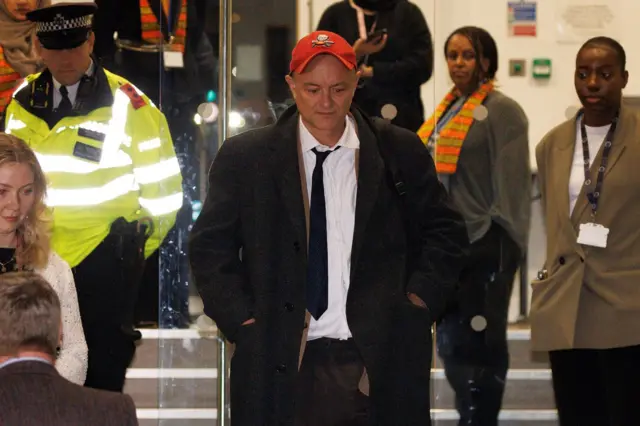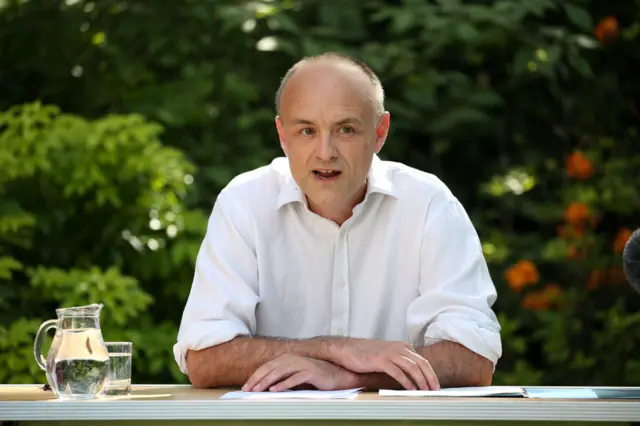The key moments from the inquiry todaypublished at 18:31 GMT 31 October 2023
 Image source, Reuters
Image source, ReutersDominic Cummings was spotted leaving the inquiry a few moments ago
This morning we heard from Lee Cain, one of Boris Johnson’s closest and longest-serving aides.
He said:
- The pandemic was the "wrong crisis" for the prime minister's "skill set", describing indecision and delay in No 10
- The inquiry also heard Johnson was "obsessed with older people accepting their fate and letting the young get on with life", according to notebook entries from then chief scientific adviser Sir Patrick Vallance in 2020
- Johnson's spokesman has so far declined to comment on the evidence given at these hearings, and is due to give evidence of his own soon
Dominic Cummings, Johnson's top adviser at the height of the pandemic, then gave evidence.
- He said the Cabinet Office was a "dumpster fire" and "bomb site" when he took up his role in 2019
- Cummings painted a picture of a government which was "dysfunctional" and had no plan to lock down the country or shield the vulnerable, even as the virus was spreading across the UK
- He said it was "pretty insane" that Johnson and other senior figures were on holiday over half-term in February 2020, as the Covid crisis escalated
- Text messages from Cummings, who was sacked in late 2020, were shown to the inquiry, many of which contained what he called "appalling language" about ministers and officials.
- He apologised for his language but denied being misogynistic
- He admitted that his family did not need to accompany him on an infamous trip to Barnard Castle during the first lockdown.
- He said the handling of the incident was a "disaster", but denied that the trip led to a collapse in public trust
We're ending our live coverage here, but you can read our full story here.
Updates on this page were written by Imogen James, Tara Mewawalla, Jemma Crew, and Becky Morton, with Krystyna Gajda on video.
The page was edited by Sam Hancock, Emily McGarvey, Marita Moloney and Dulcie Lee.



